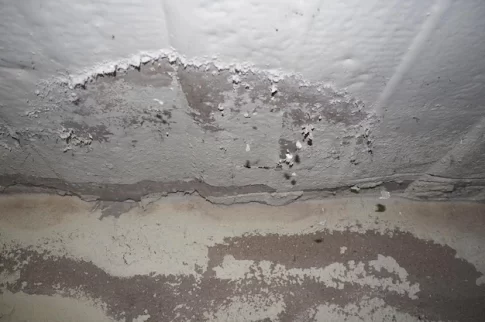Why a Clutter-Free Garden Does More for Your Mental Health Than You Think

Table Of Contents
Is your garden soothing you, or silently contributing to your stress levels? Most of us imagine our outdoor space as a tranquil haven.
But when it’s filled with scattered equipment, unruly bushes, unneeded furniture, and unfinished projects, it ceases to be a refuge. It becomes yet another space you have to deal with, clean, or avoid.
Designing a tidy garden doesn’t simply make everything appear attractive. It actually alters the way you feel, think, and even act.
The size of your garden does not matter; when you declutter it, you make room not only around you, but inside you.
Clutter Isn’t Just Visual — It’s Mental
Cluttered spaces affect your psychology. Your mind doesn’t only notice the clutter. It interprets it as an issue that was not resolved.
That underlying tension sums up. You may not be aware of it consciously, but your nervous system is.
The same applies to gardens. A cluttered garden can:
- Make it more difficult to unwind outdoors
- Increase your mental to-do list
- Create feelings of guilt for “not doing enough”
- Suppress your ability to relax in your own space
When you see heaps of unused pots, shattered ornaments, weeds between paving slabs, or outdated children’s toys, your mind gets a minor knock. It has to sift through and disregard all of that rubbish before it can relax.
Contrast that with entering a garden that’s open, neat, and purposeful. Your focus isn’t diverted in a hundred ways. You get to choose where you put your attention: on the air, the aromas, the hues, and the peace.
Neat Garden, Clearer Head

That’s why decluttering indoors decreases anxiety and decision fatigue. The same applies outside. A nice, organized garden provides you with space to breathe, literally and cognitively.
When your garden is clear of clutter, your senses aren’t bombarded. The colors pop more. The birdsong sounds keener. Your body begins to relax effortlessly.
This doesn’t require your garden to look the best it can or to be Instagram-perfect. It just requires order. A sense of attention. You can still have a patch of wildflowers or veg, or a play space. What’s important is that things have a place and a function.
Even mundane chores like lawn mowing can feel less taxing when the area is easy to navigate through. If your garden is cluttered with loose items, patchy bits, or tangled corners, even simple maintenance is a hassle.
You’re spending more time moving things around, untangling wires, or attempting to make your way through obstacles than actually getting anything done.
When the design is tidy and well-planned, those little chores begin to go more smoothly and be less infuriating.
With a cordless lawn mower, it streamlines the process even further, particularly in restricted or inconvenient areas, with minimal maintenance and hassle. It takes away that additional level of stress from something that should be easy.
Why Simplicity Keeps You Present
When a garden is simplified, your mind doesn’t need to constantly evaluate or strategize. You’re not seeing tasks every few feet. You’re just there.
This is particularly crucial if you’re a person who tends to overthink or get restless. The more physical clutter around you, the more mental tabs remain open in the background. A tidy, peaceful environment leads you to take it slow and stay down.
In a decluttered garden, you’ll find yourself more likely to:
- Sit for longer with a cup of tea
- Read without interruption
- Breathe more deeply without noticing
- Observe subtle seasonal changes
- Feel a greater sense of calm after just 10 minutes outside
There’s a direct connection between the clarity of a space and the clarity of your mind. Your garden can reinforce that daily.
What to Clear Out First
If you’re not sure where to start, focus on what’s most visually disruptive. That includes anything broken, unused, or in the wrong place.
Here’s one way to approach it:
1. Remove What Doesn’t Belong
Old children’s toys, buckets, tools, or bags that are no longer useful need to be stored, repurposed, or released outright.
2. Clean the Edges and Borders
Clean edges give a sense of shape. Cut back overgrowth, redefine paths, and eliminate weeds to restore that sense of shape.
3. Garden Tool Organization
Gather them in one location and keep them handy. If you have not used something in more than a year, it is worth asking why you are holding onto it.
4. Repurpose Unnecessary Furniture or Pots
Several mis-matched chairs, broken flowerpots, or useless containers make a room look chaotic. Keep only what you will utilize.
5. Remove Visual Distractions
Don’t pack every spot full of plants or trinkets. Leave some areas to breathe. Open space is as important as a filled space.
A cleanup like this doesn’t take nearly as long as you think it will, and the payoff is instant. You’ll feel the difference the second you take a step back.
Tips to Maintain a Clean Garden for Mental Well-Being

Here are a few tips that you need to know if you wanna keep a clean garden to maintain a stable mental well-being.
- Start Small – If you wanna have a clutter-free garden then you need to start small. Start with a small area of your garden, that way you can clutter-free garden in a controlled way.
- Adopt the ‘One-Minute Rule’ – If you have a portion of your garden which can be decluttered in a few minutes, then you should do that first.
- Declutter Regularly – Don’t try to clutter-free garden in one day or in a few weeks but keep on decluttering garden on a regular basis.
- Create a Routine – When you want to clutter-free garden on a regular basis then you need to make a habit out of it day-by-day, that way you can work in an organized way.
- Ask for Help – If you feel like clutter-free garden project that you took up is more than you can handle, then you should know when to ask for help.
Let Your Garden Breathe, So You Can Too
Imagining your garden as an external reflection of your inner life, if it’s messy, chances are it reflects something you’re not releasing.
When you release the clutter, the excess, and the overgrowth, you begin to make room for yourself to settle. It’s not about looks. It’s about serenity. A tidy garden provides you with space to slow down, center, and really see the beauty that’s there.
Read Also:
You May Also Like

December 16, 2022
What Temperature To Set Air Conditioner In Summer?

November 25, 2023
A Battle Beneath Addressing Subfloor Mould Concerns

February 3, 2024






















